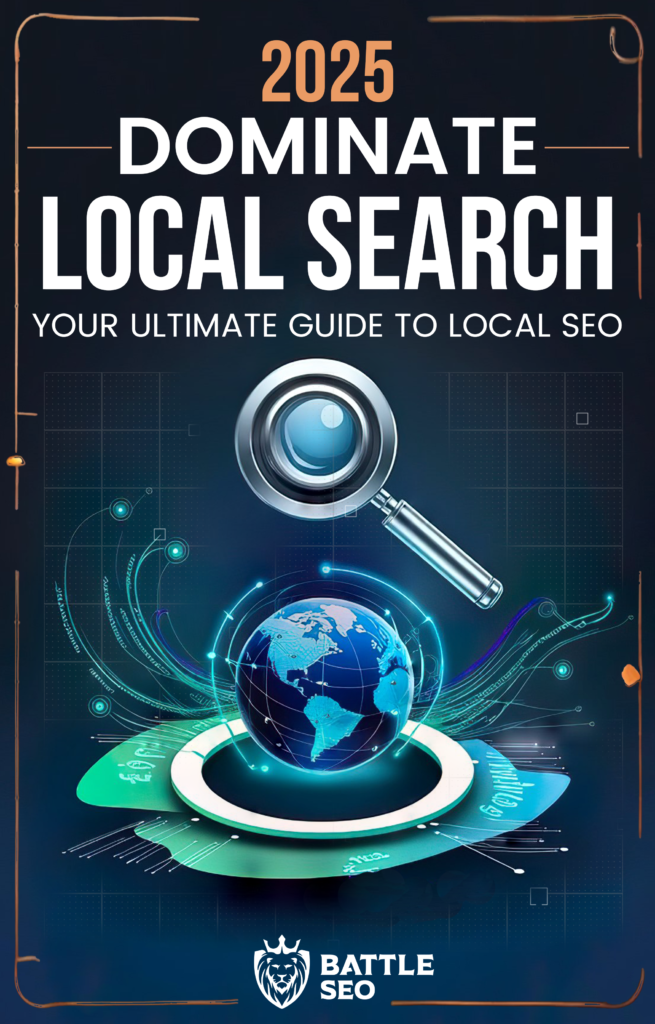What keeps you awake at night when Google rolls out another mysterious algorithm update? For many website owners and digital marketers, this question triggers a familiar sense of dread. The constant evolution of search algorithms has transformed SEO into a high-stakes arms race where staying informed isn’t just beneficial, it’s essential for survival.
Table Of Contents
- The Ever-Changing Battlefield of Search Algorithms
- Staying Ahead of the Curve
- Adapting Your Strategy When Algorithms Shift
- Building an Algorithm-Resistant SEO Foundation
- Conclusion
- FAQs
As a team of SEO specialists at Battle SEO, we’ve witnessed countless businesses scramble to recover after being blindsided by algorithm changes. The digital landscape shifts beneath our feet with each update, and those who fail to adapt quickly find themselves sliding down the rankings while competitors surge ahead.

The Ever-Changing Battlefield of Search Algorithms
Google algorithm updates can dramatically shift the SEO landscape overnight. Since Google’s inception, the search giant has rolled out thousands of updates, some minor tweaks and others major overhauls that fundamentally change how websites are ranked. The March 2025 Core Update, for instance, caused unprecedented volatility in search results, with many forum-based websites experiencing significant drops in visibility while platforms like Reddit maintained strong positions.
Google keeps changing its algorithms because their goal has always been to deliver the most relevant, high-quality results to searchers. As user behaviors evolve and new types of content emerge, Google must continuously refine its algorithms to maintain search quality.
But even when they do confirm an update, they seldom provide specific details about what changed. This creates an environment where SEO professionals must become detectives, analyzing patterns and changes to reverse-engineer what Google now values or penalizes.
Understanding the patterns behind SEO algorithm changes can help you build more resilient strategies. Rather than viewing each update as an isolated event, we recognize them as part of Google’s ongoing mission to reward websites that provide genuine value to users while filtering out those that attempt to game the system through manipulative tactics.

Staying Ahead of the Curve
How do you prepare for something you can’t predict? This question highlights the fundamental challenge of modern SEO. While we can’t know exactly when Google will release its next update or what it will target, we can develop systems to detect changes quickly and respond appropriately.
The first step in our algorithm monitoring process involves establishing reliable sources of information. These include:
- Official Google channels like the Google Search Central Blog, Google’s social media accounts, and statements from Google representatives
- SEO news websites and forums where professionals share observations and theories
- Rank tracking tools that monitor position changes across thousands of keywords
- Analytics platforms that provide data on traffic, user behavior, and conversions
Many clients ask us how to keep up with SEO algorithm changes without getting overwhelmed. The key is to filter information effectively. Not every ranking fluctuation indicates an algorithm update, and not every update will affect your website. We focus on separating signal from noise by looking for patterns across multiple websites and industries.
When we detect significant movement in the SERPs, we analyze which types of websites are being affected and what they have in common. Are content-heavy sites seeing changes? What about e-commerce platforms? Are there specific industries being targeted? This analysis helps us understand the nature of the update and its potential impact on different types of websites.
The SEO algorithm update history shows a clear trend toward rewarding user-focused content. By studying past updates, we can often predict the direction of future changes. For example, Google’s emphasis on mobile-friendliness, page speed, and content quality has been consistent over the years, suggesting that these factors will continue to grow in importance.

Adapting Your Strategy When Algorithms Shift
The impact of Google algorithm changes on SEO can vary greatly depending on your website’s characteristics. When a major update hits, some websites experience dramatic ranking drops while others see little to no effect, or even improvements. What makes the difference?
In our experience, websites that align with Google’s long-term goals tend to weather algorithm storms better than those relying on short-term tactics. This means focusing on:
Content Quality
Creating comprehensive, accurate, and valuable content that genuinely addresses user needs. The recent Google core update affected websites across multiple industries, but those with thin, low-value content were hit hardest.
Technical Excellence
Ensuring your website loads quickly, works well on mobile devices, and provides a smooth user experience. Technical issues that might have been overlooked in the past are increasingly becoming ranking factors.
Authority Building
Developing genuine expertise in your field and demonstrating it through your content. Google’s E-E-A-T standards (Experience, Expertise, Authority, and Trust) have become increasingly important for evaluating content quality.

Following SEO best practices for algorithm changes can protect your website from major ranking drops. When we work with clients who have been affected by updates, our recovery process typically involves:
- Conducting a thorough content audit to identify low-quality or problematic pages
- Analyzing technical issues that might be affecting user experience
- Reviewing the website’s backlink profile for potential quality issues
- Comparing the affected website to competitors who maintained or improved their rankings
Implementing SEO updates quickly can give you an advantage over slower competitors. While many businesses panic or freeze when faced with ranking drops, we’ve found that prompt, strategic action based on careful analysis yields the best results.
Building an Algorithm-Resistant SEO Foundation
What if you could create an SEO strategy so solid that algorithm updates barely affect you? While no website is completely immune to Google’s changes, we’ve helped numerous clients navigate through major SEO algorithm changes without losing rankings by building resilient SEO foundations.
The SEO arms race between websites competing for top rankings never stops. However, those who focus on sustainable practices rather than quick wins tend to maintain more stable rankings over time. This means:

Diversifying Traffic Sources
While organic search is valuable, relying exclusively on Google for traffic puts your business at risk. We help clients develop multi-channel strategies that include social media, email marketing, and other sources of visitors.
Creating Genuinely Valuable Content
Rather than chasing keyword density or content length benchmarks, focus on answering user questions comprehensively and providing unique insights. Content that truly helps users tends to perform well regardless of algorithm changes.
Building Real Relationships
Authentic backlinks from relevant websites in your industry provide stronger, more resilient ranking signals than artificial link building schemes. We focus on earning relationships through link building rather than quick-fix tactics.
Monitoring and Adapting
Regular analysis of your website’s performance allows you to identify and address potential issues before they become serious problems. This proactive approach helps prevent dramatic ranking drops when updates occur.

Staying competitive in the SEO arms race requires constant adaptation and improvement. The websites that consistently rank well aren’t necessarily those with the biggest budgets or the most aggressive tactics, they’re the ones that consistently deliver what users and Google are looking for: valuable, accessible, trustworthy information.
Conclusion
SEO algorithm changes will continue to reshape the digital landscape, challenging businesses to evolve or fall behind. Rather than viewing these changes as obstacles, we see them as opportunities to distinguish quality websites from those relying on shortcuts.
By staying informed about updates, analyzing their impacts objectively, and maintaining focus on long-term quality rather than short-term tricks, your business can not only survive but thrive amid Google’s evolving algorithms.
The future of SEO belongs to those who understand that the ultimate goal isn’t to outsmart the algorithm but to align with its purpose: connecting users with the most valuable, relevant content possible. When you build your strategy around this principle, algorithm updates become less threatening and more affirming of the work you’re already doing.
FAQs
How often does Google update its search algorithm?
Google makes thousands of updates each year, ranging from minor tweaks to major core updates. While most small changes go unnoticed, Google typically rolls out several significant updates annually that can noticeably impact search rankings. The frequency has increased in recent years, with some major updates occurring quarterly.
How can I tell if my website has been affected by an algorithm update?
Monitor your search rankings and organic traffic patterns closely. Sudden, significant changes that coincide with reported update timeframes likely indicate algorithm impact. Compare your traffic changes with industry benchmarks to determine if the effect is specific to your site or widespread across your sector.
What’s the fastest way to recover from a negative algorithm impact?
There’s no quick fix for algorithm-related ranking drops. Recovery requires identifying which aspects of your site conflict with Google’s quality guidelines, then methodically addressing those issues. Focus on improving content quality, fixing technical problems, and enhancing user experience rather than looking for shortcuts.
Should I change my SEO strategy after every Google update?
No, constantly changing direction can be counterproductive. Instead, build a solid foundation based on creating valuable content, providing excellent user experience, and demonstrating expertise. Make targeted adjustments based on specific update impacts rather than overhauling your entire strategy with each announcement.
Are there any algorithm-proof SEO strategies?
While no strategy is completely algorithm-proof, focusing on user experience, content quality, site performance, and genuine authority building provides the most stable foundation. These fundamentals have consistently aligned with Google’s long-term goals and tend to weather algorithm changes better than tactical approaches designed to exploit specific ranking factors.
Stay Ahead in the SEO Arms Race
→ Leverage AI-driven insights to adapt to evolving algorithms
→ Blend proven SEO tactics with agile, high-impact content strategies
→ Outsmart frequent algorithm changes with smarter content creation
Create resilient, algorithm-proof content – start optimizing today! →
⭐⭐⭐⭐⭐ Rated 4.8/5 by Hundreds of Satisfied Clients

Mike Guess is an accomplished marketing expert with over 15 years of experience leading various companies to digital success. He is the CEO of Battle SEO and 39LINKS.COM, overseeing bespoke SEO and digital marketing campaigns that enhance online visibility and drive client growth. He also serves as Chief Marketing Officer and partner at We Speak Meat, where he drives brand strategy and customer engagement for a premium meat retailer.
Related Articles:
Multi-Location SEO: Boosting Rankings Around Multiple Addresses
Boost Your Franchise’s Online Presence with Effective SEO Strategies

